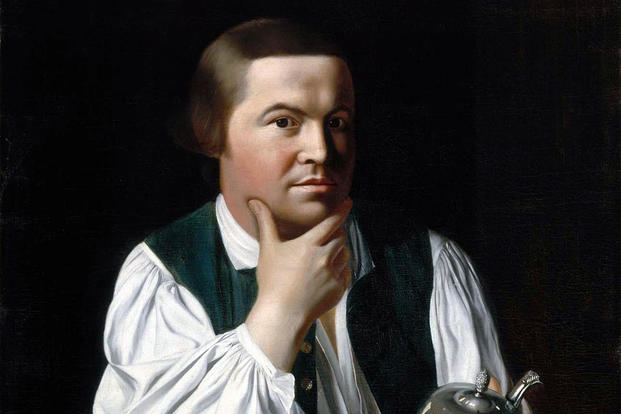Today is Velociraptor Awareness Day. Velociraptors are small vicious dinosaurs that usually ruin everyone's day at your local millionaire's amusement park.
Remember large windows and doorways are Velociraptor points of entries. Mark them accordingly and avoid at all cost. Once you've finished locating possible velociraptor entry points within your building, you can mark those areas so that your loved ones are also aware of the building's vulnerabilities.
Velociraptor attacks are a very serious matter. Educate yourself, and make sure you always have at least four possible escape routes, since three of those will be occupied by velociraptors in the event of an attack.
Remember you don't have to outrun a raptor, you just have to outrun one of your friends.
April 18 -
Today, once again record stores on six continents were supposed to celebrate Record Store Day,
an annual event honoring independently owned and operated music shops. Due to the continuing COVID-19 health crisis, the celebration has been moved back, this year, to June 12 and July 17.
Click here to see which albums are being released exclusively for Record Store Day.
April 18, 1975 -
John Lennon released Stand by Me on this date.
Lennon's cover was his last hit prior to his five-year retirement from the music industry.
April 18, 1987 -
Aretha Franklin and George Michael duet I Knew You Were Waiting (for Me) hit no. #1 on the Billboard charts on this date.
The song was written by Simon Climie and Dennis Morgan; the pair met in 1983 after Morgan attended an Everly Brothers concert. It was the third song they wrote together. Morgan explained in The Billboard Book of Number One Hits: "That was one of those songs that came out of mid air – a gift from above, if you will." The song was not originally written as a duet. Climie and Morgan pitched the song to Tina Turner as well to Aretha Franklin and Arista Records head Clive Davis. It was Davis' idea to get Franklin and George Michael to record the song as a duet. It appeared on Franklin's 1986 album Aretha.
April 18, 2003 -
Walt Disney Studios' adaptation of the children's novel, Holes, starring, Sigourney Weaver, Jon Voight, Patricia Arquette, Tim Blake Nelson and Shia LaBeouf, went into general release in the U.S. on this date.
Sigourney Weaver wanted to be in this film because Holes is her daughter's favorite book.
April 18, 2008 -
Universal's Forgetting Sarah Marshall, starring Jason Segel, Paul Rudd, Kristen Bell, Mila Kunis, Russell Brand, and Bill Hader, premiered in the US on this date.
The film is based on script-writer Jason Segel's experience breaking up with Linda Cardellini, as well as three other breakups with unspecified women. Segel has said that the 'naked breakup' did not involve Cardellini, and that she was a great girlfriend.
Another ACME book from the back shelves
Today in History:
It was a tense April in Boston in 1775. The colonists were simmering with resentment toward the motherland, on account of King George III having strewn the colonies with excessive tacks, painful to step on and bothersome to the horses. Furthermore, British cabbies had refused to unionize, and the colonists were adamantly opposed to taxis without representation.
King George III tried to assuage the riled colonists by sending them boatloads of tea. (King George III was insane.) The colonists dressed up like Indians and poured all the king's tea into Boston harbor, proving they could be perfectly insane without any help from the king.
Meanwhile, a network of colonists had been secretly meeting for some time. They reasoned that since they preferred coffee to tea, liked salad before rather than after the entree, and couldn't make any sense whatever of cricket, they were obviously no longer British. Perhaps they had become French, or Portuguese. Finally they took a vote, which proved they were American.
The king's colonial representatives overheard some of these discussions, and decided to arrest as many of these patriots as possible, unless they could kill them first.
On April 18, 1775, Paul Revere, (William Dawes and Samuel Prescott) got wind of the British officers' plan to arrest John Hancock and Sam Adams in Lexington that very night - arrests that would have been calamitous to the colony's fledgling insurance and beer industries.
Anticipating colonial unrest, British officers had deployed Regulars on all the key roads between Boston and Lexington. (The Regulars had previously proved effective even where the Irregulars and Extra Longs had failed.)
Revere told some friends to hang two lanterns in Boston's Old North Church, in order to signal his wife that he'd be late for dinner, and immediately set out for Charlestown. Once there, he mounted a horse and began the ride to Lexington.
He found himself almost immediately pursued by Regulars, whom he eluded by means of wily Boston riding tactics: he took a series of lefts from the right lane and a series of rights from the left, utterly confounding his pursuers, who were anyway accustomed to riding on the other side of the street and still weren't sure what to do at a blinking red light. One of the Regulars rode straight into a fruit stand and ended up covered in produce. Another rode through a big plate glass window that two workmen were carrying across the road. It was pretty funny.
Just before midnight, Revere finally arrived at Jonas Clarke's Lexington home, where he breathlessly informed Adams and Hancock that the British were coming. This confounded Adams and Hancock, who, like Revere, were themselves British.
Once the confusion was cleared up, Adams and Hancock fled for safety while Revere and two others rushed on to Concord. Many memorable and important historical events ensued, such as the American Revolution, but by then it was April 19th, and therefore no longer appropriate to this date's entry.
Although Henry Wadsworth Longfellow's poem immortalized Paul Revere alone. Revere was the least heroic, he was captured by British patrols and held for awhile before he was released without his horse.
Please indulge your local tea party members today.
April 18, 1906 -
A devastating earthquake struck San Francisco at 5:13 a.m., followed by a major aftershock three hours later. More than 3,000 people were killed from either collapsing structures or any of the 59 separate fires which burned over the next three days.
In the downtown area, the U.S. Army was forced to dynamite whole city blocks in order to contain the flames, due to the lack of water pressure.
April 18, 1942 -
The Doolittle raids took place over Tokyo (the first U.S. air raid to strike the Japanese home islands during WWII,) and were led by Lieutenant Colonel James H. Doolittle, who received a congressional medal of honor for his actions.
Though the raid did not do much material damage to Japan, it demonstrated how vulnerable the Japanese home islands were to air attack just four months after their surprise attack on Pearl Harbor.
April 18, 1955 -
Nobel Prize recipient Albert Einstein died in his hospital bed from a ruptured aortic aneurysm on this date.
Seven hours later, Dr. Thomas Harvey, chief pathologist at Princeton Hospital, performed Albert Einstein's autopsy. He removed the brain and took it home. Thus began a 40 year journey of "They Stole Einstein's Brain".
April 18, 1963 -
Harvard's most successful 'failure' Conan O'Brien was born on this date
Coco is still asking his fans to donate to the CDC Foundation during the COVID-19 crisis.
April 18, 1983 -
62 people were killed and more than 100 injured in a suicide bombing against the U.S. Embassy in Beirut on this date. The attacker used a van packed with one ton of high explosives. Included among the dead was the CIA's entire Middle East bureau.
The group Islamic Jihad claims responsibility, although the intelligence community believes it was actually the work of Hezbollah.
April 18, 1988 -
American auto worker John Demjanjuk was convicted of crimes against humanity by an Israeli court on this date. They determined that he was Treblinka's notorious Ivan the Terrible. The court sentences him to hang one week later, but the conviction is later overturned when it appears to have been a case of mistaken identity.
In 2002, a U.S. federal court later strips Demjanjuk of his citizenship after it rules that he did in fact work as a Nazi prison guard, although at Sobibor, Majdanek, and Flossenburg. On May 11 2009, Demjanjuk left his Cleveland home by ambulance, and was taken to the airport, where he was deported by plane to Germany. Starting in late 2009, his trial began in Munich on charges he helped kill 29,000 Jews as a Nazi prison guard at the Sobibor death camp in 1943. On May 12, 2011, Ivan Mykolaiovych Demianiuk was convicted as an accessory to the murder of 27,900 Jews and sentenced to five years in prison.
Mr. Demjanjuk died on March 17, 2012, still attempting to appeal his case. Since his appeal was not heard at the time of his death, his conviction was invalidated and he died without a criminal record.
I'm not sure how that helped him when he approached the gates of hell.
And so it goes.






Irregulars and Extra Longs, indeed. Keep up the good and quirky) work.
ReplyDelete